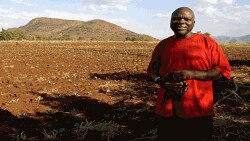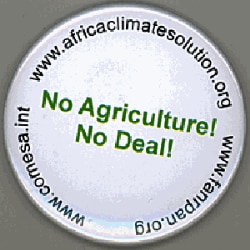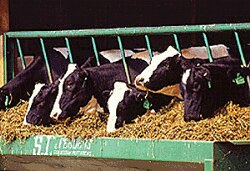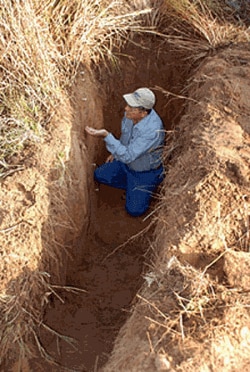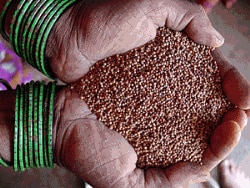When the world's biggest polluters gathered this past December at the U.N. Climate Summit in Copenhagen, they managed to forge a non-binding agreement that could help put the brakes on global warming. The 12-paragraph document outlines a way to move forward on climate changing emissions reductions, verification, deforestation and finance.
The director of the U.S. Agriculture Department's Climate Change Program, Bill Hohenstein, sums up how agriculture faired. "[It was] more so than any meeting that I've been at. Not just within the rooms, but also in the corridors and in the hallways and in the side events."
The warming temperatures, increased rainfall, droughts and floods resulting from industrial emissions threaten to disrupt farming systems around the world, with developing nations expected to fare the worst. The most immediate agriculture issues brought to Copenhagen focused on food security, carbon emission curbs and farming-system adaptation in the face of climate change.
On the one hand, the sector contributes 14 percent of global warming emissions largely from crop residues, decaying manure and fertilized soils. On the other hand, farmers are faced with the dilemma of the need to increase food production as populations grow, a move that can lead to deforestation.
World Resources Institute President Jonathan Lash says among the most positive outcomes of the non-binding Copenhagen Accord was its support for REDD, an acronym for the U.N.'s Program for Reducing Emissions from Deforestation and Forest Degradation. "In Copenhagen, a plus was clearly added which extends this regime also to cover reforestation, that is the other 50 percent of the land that was once forest."
Lash says that REDD brings large deforested nations like China, India and South Africa into play. "It restores water flows, provides jobs and improves ecosystems." Lash adds degraded lands also open up the carbon trading market. Gerald Nelson, senior research fellow with the International Food Policy Research Institute says work needs to be done to ensure that agriculture is part of the trading scheme. "[We need to figure out] ways by which people who are interested in buying carbon credits can pay for activities in the developing world that can help small farmers and supports soil carbon in particular or agro-forestry practices."
Countries that signed the Copenhagen Accord are expected to submit pledges for carbon emissions reductions by the end of the January. Advocates at the meeting want agriculture to figure in the language and substance of those actions.
Although not part of the Copenhagen Accord or negotiations, one of the biggest steps forward in Copenhagen was the announcement of the Global Research Alliance on Agriculture and Greenhouse Gas Emissions. Twenty-one nations pledged $150 million to the effort, which USDA's Bill Hohenstein says is focused on better understanding and controlling greenhouse gas emissions from farms. He says the alliance would coordinate programs and research on livestock, croplands and rice. "We would then identify countries who could help coordinate those efforts to identify the technical experts, get them together and work on the substantive priorities in terms of developing technologies and practices to reduce emissions or increase sequestration within those critical work areas."
Hohenstein says the new Alliance will help set priorities and define roles for the international research agencies, private sector and commodity groups.
Gerald Nelson with the International Food Policy Research Institute says as countries work together on shared problems the results may be incorporated into future climate treaty negotiations.
Experts say farming systems must be better managed, even as farmers take steps to adapt, as well as they can, to the earth's changing climate. The Global Research Alliance countries plan to meet in a few months to advance this agenda.




